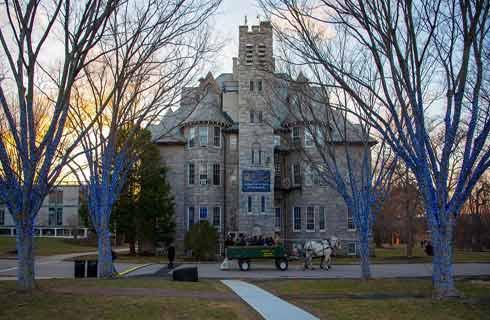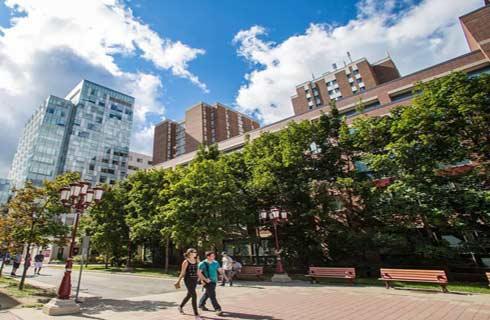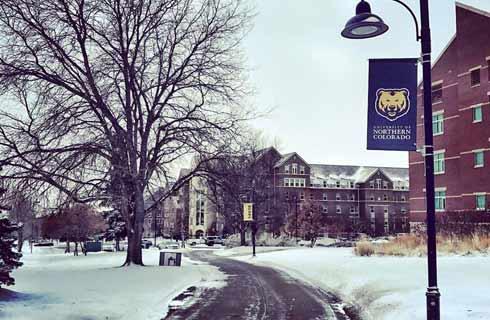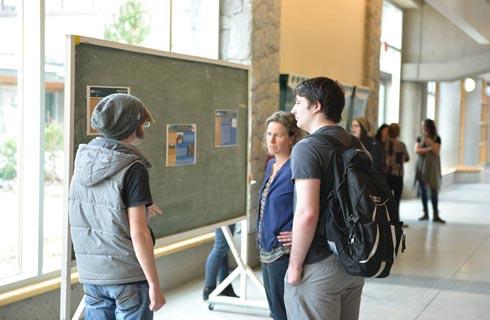理学士(荣誉)免疫学
BSc (Hons) Immunology

学历文凭
Bachelor Degree with Honours

专业院系
School of Life Sciences

开学时间

课程时长

课程学费

国际学生入学条件
IDP—雅思考试联合主办方

雅思考试总分
- 雅思总分:
- 托福网考总分:
- 托福笔试总分:
- 其他语言考试:
CRICOS代码: C550
申请截止日期: 请与IDP联系 以获取详细信息。
课程简介
In Immunology we study how mammals, especially humans, have evolved networks of cells and molecules to protect themselves from disease. We discuss both the fundamental concepts, and their application, for instance in developing new vaccines. We also discuss what happens when the immune system goes wrong, causing cancer or inflammatory disease, and new ways of harnessing the immune system to treat these conditions. We help our students to gain a strong suite of transferrable skills, and a comprehensive understanding of the immune system.This is one of the few programmes in the UK which offer an Honours degree focusing solely on immunology for two years (years 3 and 4). The degree is taught by a team of internationally-recognised researchers, who are all experts in immunology. The course is one of the longest-running immunology courses in the UK, having been established over 40 years ago. This is the only course in the UK where students study immunology full-time for two years. We run residential study trips to locations outside Glasgow in both third year (SCENE) and final year (The Burn). About 25% of our students take advantage of the MSci degree, where they go on a year-long work placement.Our flexible Life Sciences degrees challenge you to apply the theory of the classroom in practical situations, in the lab or in the field. We offer an extremely wide range of courses in human and animal biology, biomolecular sciences, infection and immunity. Our aim is to offer internationally competitive degrees that meet the needs of today’s science graduates. To achieve this aim, we utilise the research and teaching strengths of the College of Medical, Veterinary & Life Sciences to provide our graduates with the skills necessary for success in any chosen career. We have a large and diverse student body, which includes Scottish, UK, EU and international students. We regularly welcome visiting and exchange students, and we believe in the many advantages our students gain from adding an international dimension to their studies.Many graduates continue to postgraduate Masters or PhD studies, or enter medicine, dentistry or veterinary medicine. Research-based career destinations include universities and research institutes and industry, and clinical research and diagnostic work in hospital laboratories. Many go on to a career in other fields of science, such as infection biology, and cancer or cardiovascular research, or areas such as teaching, scientific journalism, business and the Civil Service.
相关申请
 预科
预科 奖学金
奖学金 实习机会
实习机会 在校学习
在校学习 跨境学习
跨境学习 校园授课-线上开始
校园授课-线上开始 在线/远程学习
在线/远程学习
开学时间&学费
学费信息仅供参考,请与IDP联系以获取详细信息
| 开学时间 | 时长 | 学费 | 地点 |
|---|
学校排名

世界排名93
数据源:
泰晤士高等教育世界大学排名
关于格拉斯哥大学

格拉斯哥大学自1451年建校以来,始终致力于培养学生。该大学稳居全球百强大学之列,在2026年QS世界大学排名中位列第79位,在2025年泰晤士高等教育世界大学排名中位列第87位。2024年,格拉斯哥大学被《泰晤士报》和《星期日泰晤士报》优秀大学指南评为苏格兰年度大学。格拉斯哥大学是一所真正的国际化大学,拥有来自140多个国家的约43000名学生,并拥有超过9000名教职员工。它是英国顶尖研究型大学罗素集团的成员,也是Universitas 21(一个由全球研究型大学组成的网络)的创始成员。本科生可选择约100个单项荣誉学位和600多个联合荣誉学位组合。此外,大学还提供300多个授课型研究生课程和丰富的博士学位攻读机会。格拉斯哥大学毕业生就业能力位列英国前20名(QS毕业生就业能力排名,2022年),这意味着学生可以确信,他们的学位将为他们毕业后的生活做好准备。大学每年通过实习中心提供数百个实习机会,其强大的学生支持服务为学业、生活和财务方面提供帮助。格拉斯哥是英国第三大城市,被誉为全球友好且文化氛围浓厚的学生城市之一。格拉斯哥被誉为苏格兰的文化之都,拥有众多一流的博物馆、美术馆和建筑。格拉斯哥是英国第一个联合国教科文组织音乐之城,拥有 90 多个公园和花园、便利的交通和两座国际机场,为学习和旅游提供了理想的环境。
本校相关课程

动物学理学士(荣誉)
学历文凭
Bachelor Degree with Honours
开学日期
课程费用总额


BVMS兽医和外科
学历文凭
Bachelor Degree
开学日期
课程费用总额


理学士(荣誉)兽医生物科学
学历文凭
Bachelor Degree with Honours
开学日期
课程费用总额


BD(MIN)(荣誉)神学和宗教研究
学历文凭
Bachelor Degree with Honours
开学日期
课程费用总额


文学硕士(荣誉)戏剧研究
学历文凭
Bachelor Degree
开学日期
课程费用总额


BTechEd(荣誉)技术教育
学历文凭
Bachelor Degree with Honours
开学日期
课程费用总额

其他相关课程

生物医学学士
 皇家墨尔本理工大学
皇家墨尔本理工大学学历文凭
Bachelor Degree
开学日期
课程费用总额


哲学硕士-生物医学和生物化学
 澳大利亚国立大学
澳大利亚国立大学学历文凭
Masters Degree (Research)
开学日期
课程费用总额


生物医学学士
 詹姆斯·库克大学
詹姆斯·库克大学泰晤士高等教育世界大学排名:361
学历文凭
Bachelor Degree
开学日期
课程费用总额


理学学士(海洋生物学)
 弗林德斯大学
弗林德斯大学泰晤士高等教育世界大学排名:307
学历文凭
Bachelor Degree
开学日期
课程费用总额


理学学士-海洋生物学(荣誉学位)
 弗林德斯大学
弗林德斯大学泰晤士高等教育世界大学排名:307
学历文凭
Bachelor Degree with Honours
开学日期
课程费用总额


城市与环境规划学士/海洋生物学理学学士
 格里菲斯大学
格里菲斯大学泰晤士高等教育世界大学排名:258
学历文凭
Dual Degree
开学日期
02 March 2026
课程费用总额
AUD 167,500










 英国
英国